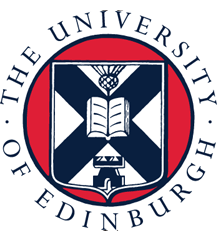Alex Laurence
Data scientist | Analyzer
About Me
Hello, I’m Alexander Laurence!
I am talented data scientist and developer with a strong background in neuroscience. I have graduated with a Master's degree from the University of Edinburgh and a Bachelor's degree with honours from the University of Westminster within the discipline of Neuroscience. I have worked across two international laboratories in fMRI research as well as presenting my research at various conferences home and abroad. Since graduating, I have been developing on the skills I gained towards the field of Artificial Intelligence.
Without a doubt, AI will shape humanity in ways that are simply incomprehensible through our current lens. So with this in mind, the prospect of working on various AI projects excites me. The mere thought of being part of humanity's next frontier is an opportunity that no one should pass.

personal information
- Full Name
- Alexander A. Laurence
- D.o.b.
- 04 Feb 1992
- address
- London, United Kingdom
- hello@celestial.tokyo
- phone
- +44 7538 467688
- Hire
- Available
areas of expertise
education
Machine Learning (CATS)

With the availability of massive amounts of data and computational power, what was once a fairly obscure affair has now acquired a certain notoriety. The huge number of algorithms used in machine learning turn out to be almost all increasingly subtle variations of four or five basic ideas, and these were the subject of this short course (10 CATS pts). Each of these ideas were introduced with an example, I then examined its simplest mathematical formulations and understood when it works, and why.
Integrative Neuroscience (MScR)

This research-based Masters program spanned all levels of modern cutting-edge Neuroscience (molecular, cellular, systems, regenerative, cognitive, clinical and computational) and provided me with a real-world project to work on within world-leading researchers at the Edinburgh Neuroscience community. I presented by work at the 2017 MIUA Conference and collaborated with Chang-Gung University in Taiwan.
Cognitive Neuroscience (BSc Hons)

This unique course placed a particular focus on brain-behaviour relationships, by bringing together evidence from molecular and cellular neuroscience, brain injury studies and neurological illness, while also looking at developmental and cognitive aspects. It explored a wide range of research-based and clinically relevant methodologies including brain imaging, computational modelling and comparative cognition (considering evolutionary and developmental approaches).
During my degree, I worked with Dr. Juha Silvanto on a final year Cognitive Neuroscience project on implicit memory. I received an 80% first class grade for the thesis, which was the highest in my cohort.
libraries, engines, and API
technologies
programming languages
personal characteristics
- Growth-mindset
- Team-player
- Creative thinker
- Relaxed
interests
- Music
- Video Games
- Art
- Sports
- Sci-Fi/Fantasy
- Travelling
- Cooking
- Journalism
- Languages
Awards and Achievements

Best Hacker Community Project
As part of Major League Hacking's 2018 Local Hack Day, I won the Best Community Hack category prize out of thousands of contestants for my SEN EdTech app called 'Barnacle'.

PyTorch Challenge Scholarship
Facebook Artificial Intelligence provided me with a prestigous scholarship to study Deep Learning with PyTorch and create several projects on Udacity's online platform.

Android Challenge Scholarship
As part of Udacity's scholarship program, I was granted a scholarship to study about the fundementals of Android mobile development out of 6,000 applicants.

Business Ideas Competition
I won two separate awards from the University of Edinburgh's annual Launch.Ed Business Ideas Competition. In 2016, I was runner up. In 2018, I was the 3rd place winner.

Guarantors of Brain
I was awarded a travel bursary in order to present my undergraduate research at the University of Oxford's annual Autumn School in Cognitive Neuroscience in 2016.

British Science Festival
The British Science Association awarded me a 5-day bursary package to attend the 2014 British Science Festival hosted by the University of Birmingham.